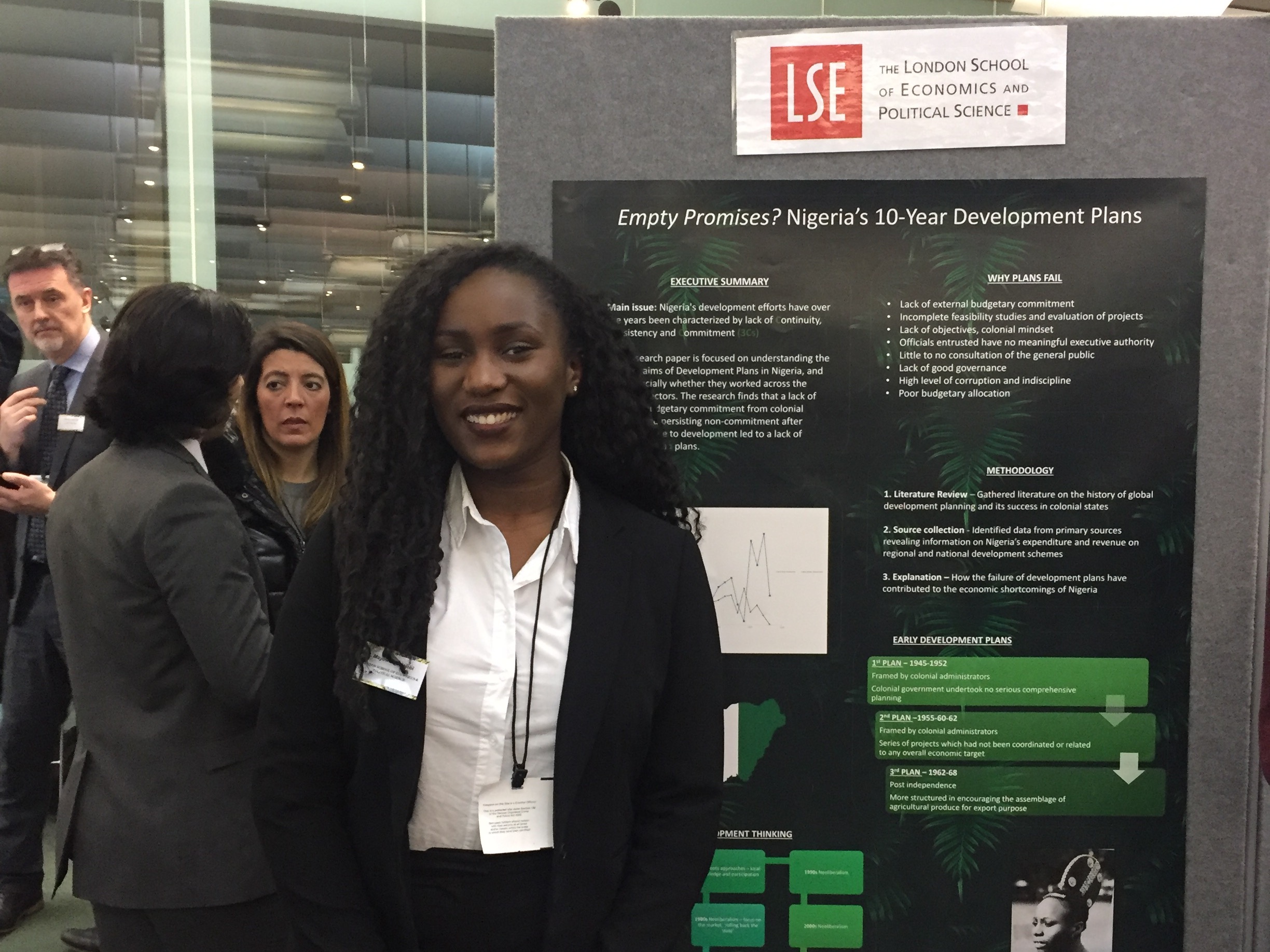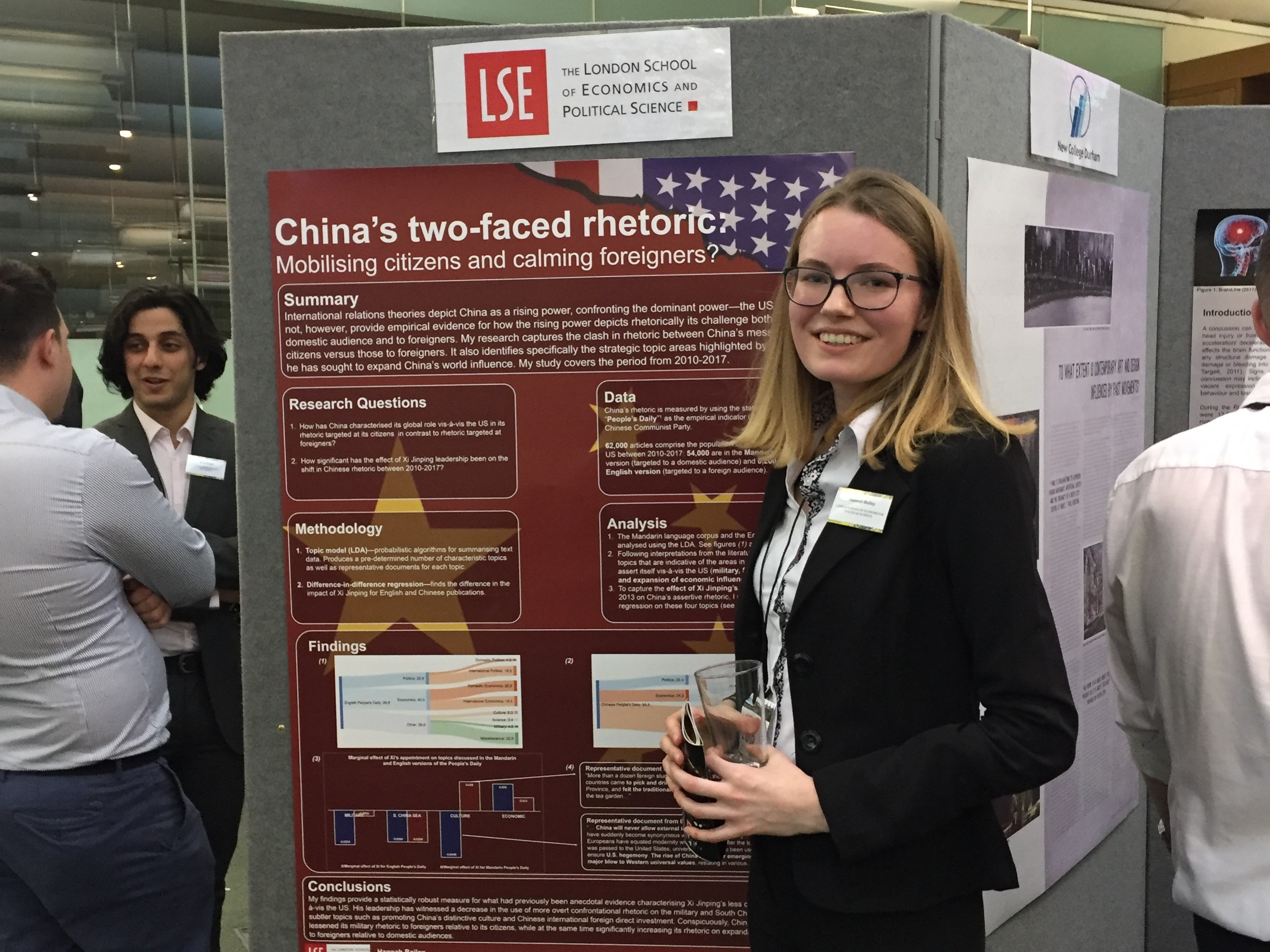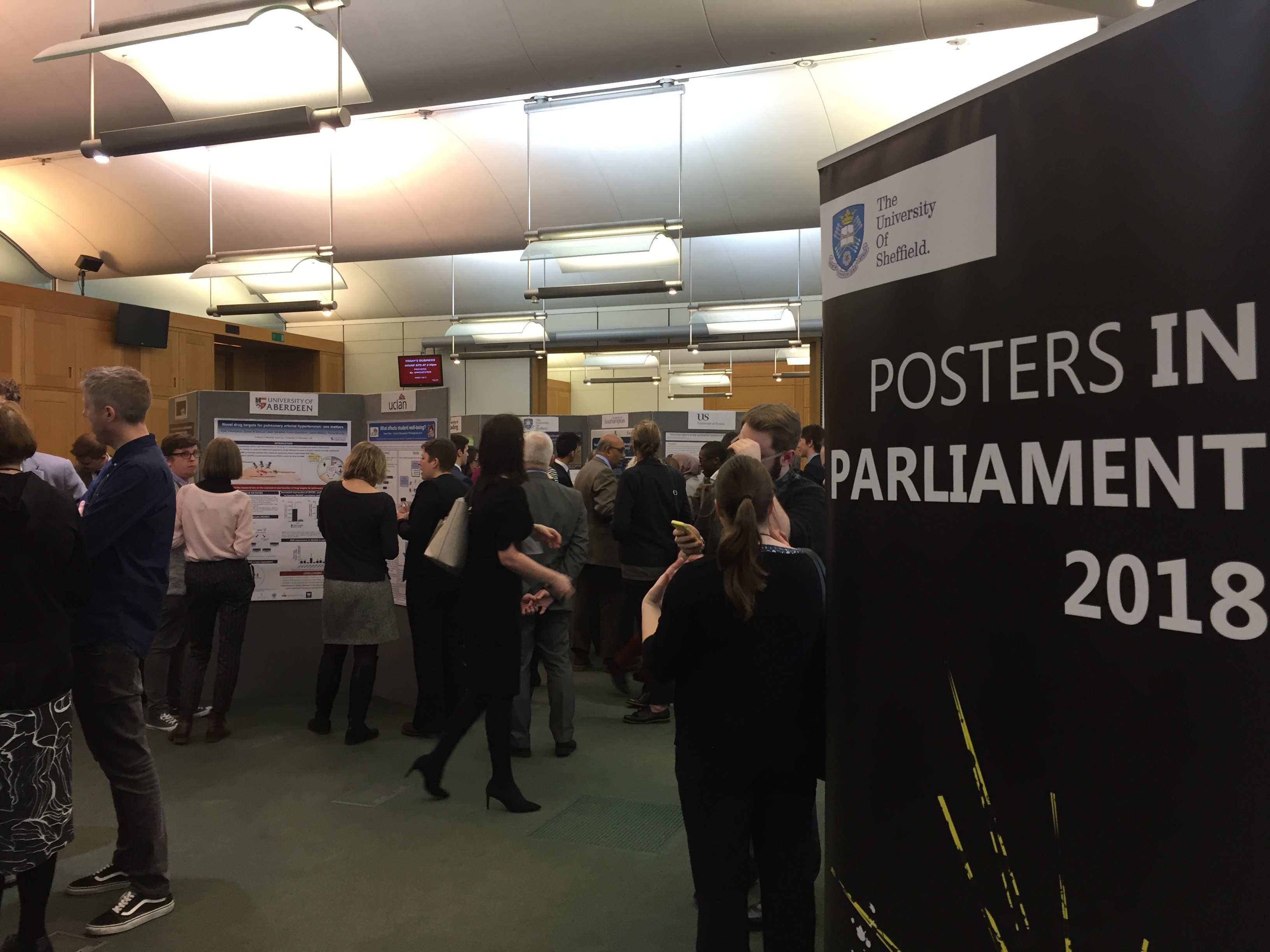On 20 February 2018, LSE students Hannah Bailey (Government) and Mayowa Igbalajobi (Economic History), represented LSE this year at the annual Posters in Parliament event held in Portcullis House.
Posters in Parliament is a yearly opportunity for undergraduates from universities across the UK to showcase their research by exhibiting them as posters.
We asked Hannah and Mayowa what it was like to showcase their research at the exhibition, and how the Teaching and Learning Centre supported them throughout the process:
How did you get involved in the Posters in Parliament initiative?
Hannah: I had heard from other students in previous years about the Posters in Parliament event, and was keen to apply in my final year. I received an email asking students to apply to present their research projects at the Posters in Parliament event, and so I drafted my dissertation abstract and sent it off.
I was lucky enough to be chosen to be one of the two LSE presenters. With the help of the TLC staff, I spent the next few weeks summarising and compiling my research into poster form.
Mayowa: Funnily enough, my best friend actually sent me a link and told me to apply for the opportunity about 3 hours before the deadline! Prior to that I’d never actually heard about the initiative. I was lucky enough that my application was selected and then it was straight to work.

Tell me about your submissions.
Mayowa: I submitted what can be described as the beginning stages of the research for my final year dissertation. My research looks at development plans initiated in Nigeria, post and pre-independence. I spent quite a bit of time gathering primary sources on public finance statistics in Nigeria which helped me paint a picture of development priorities in that period.
Hannah: My dissertation project is titled “China’s Two-Faced Rhetoric: Mobilising Citizens and Calming Foreigners?”. I found that international relations theories depict China as a rising power, confronting the dominant power — the US. They do not, however, provide empirical evidence for how the rising power rhetorically depicts its challenge both to its domestic audience and to foreigners. My research captures the clash in rhetoric between China’s messages to its citizens versus those to foreigners. It also identifies specifically the strategic topic areas highlighted by Xi Jinping as he has sought to expand China’s world influence.

How did the TLC help you with the process?
Mayowa: TLC were really helpful in letting me know what kind of things should be included on the poster as I had no idea how to create one. They were also really helpful in providing feedback quickly which helped me to improve the poster in what was a pretty tight schedule.
Hannah: The TLC staff were extremely helpful throughout the entire process of compiling my poster and preparing for the Posters in Parliament event. They gave me detailed feedback on several drafts of my poster, arranged for a presentation practice session, and were at the Posters in Parliament event to support both LSE presenters.
I would encourage all undergraduates to get involved in academic research in some form during their time at LSE, as the LSE is a truly outstanding hub of research expertise and knowledge.
How have your degrees supported you to develop your research interests?
Mayowa: LSE Economic History is a degree that most people have never heard of. I usually explain it as looking at the development of different economies over time, what shaped them and how that has affected their current economic status. Therefore it felt only natural to combine my interests of development with looking at my home country’s economic history.
Hannah: I have particularly benefitted from the flexibility of my LSE Politics and Philosophy degree, as it has allowed me to explore interests outside of my core courses. In my second year I decided (having very little previous experience in studying languages) to do a Mandarin language module as part of my degree. This then led me to develop an interest in Chinese politics that I have continued to pursue in my third year as an undergraduate in my dissertation.
The LSE Government Department academics (particularly my dissertation supervisor, Professor Chun Lin) have been very helpful in pointing me in the direction of sources to use to further my knowledge of Chinese politics and China’s role in international relations.

Has LSE helped you get involved in research opportunities while you’ve been a student here? Are there any others you’ve gotten involved with?
Mayowa: This is the first one I’ve actually gotten involved in!
Hannah: I think that LSE is particularly unique in its array of research opportunities for undergraduates. Throughout my time at LSE, I have been involved in research in many different forms, from being a Research Assistant for a Professor in the Government Department in my first year, to organising an undergraduate research conference as a part of the LSE Undergraduate Political Review, to being Editor-in-Chief of the LSE Undergraduate Political Review Journal.
I have been fortunate enough to not only engage in undergraduate research, but help others gain the skills to perform their own research. As Editor of the LSE UPR I currently supervise two undergraduate research teams, who are each undertaking their own group research projects. I would encourage all undergraduates to get involved in academic research in some form during their time at LSE, as the LSE is a truly outstanding hub of research expertise and knowledge.
What would you say to other LSE students wanting to showcase their work?
Hannah: If you are currently writing or looking to write a dissertation, definitely look for events where you can showcase your project to other students and academics. It is an excellent opportunity to not only share your hard work and findings with others, but to gain valuable feedback. Several of the attendees at the Posters in Parliament event pointed out alternative perspectives to my project that I had not previously considered and will be including in my write up!
Mayowa: Go for it! It’s a great way to get your mind wrapped around your dissertation. As an undergraduate, doing a dissertation is the first time we engage in such a huge independent project. It helped me to think about what I was really trying to say.
What are your plans for your research after you graduate?
Mayowa: I’m not sure yet. I want to explore the world a bit more so I can decide exactly what I want to do for my Masters and make an impact in the world.
Hannah: Something that I have been told both by attendees at the Posters in Parliament event, as well as other academics, is that I should consider publishing my dissertation in an academic research journal. So I will definitely be looking into that once I have finished writing it up. After I graduate I hope to be studying for a Masters either in Contemporary Chinese Studies or Research Methods, two areas of interest that I explored in my dissertation and hope to continue to study and research in the future!
The LSE Teaching and Learning Centre administers LSE's Posters in Parliament each year, and its other research-based educational projects offer even more opportunities for LSE undergraduates, in the field of collaborative research.
LSE GROUPS is now recruiting for its Summer Term sessions, which take place over two weeks. For any undergraduate interested in the visual research presentation skills developed by Posters in Parliament, as well as the insight and networking with peers afforded by GROUPS every year, we would recommend applying!
Unlike Posters in Parliament GROUPS is not limited to 3rd year dissertation students and recent graduates - any undergraduate, from any year of study, and any discipline, can apply. You can find out more by visiting the TLC website.